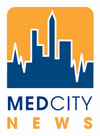
Boston Scientific Inc. (NYSE: BSX) is no stranger to lawsuits, usually from unhappy shareholders and consumers. But an entire country?
The Natick, Mass.-based medical device monolith still faces a lawsuit from the Republic of Iraq, whose government alleges that Boston Scientific and 91 other global companies paid kickbacks to Saddam Hussein’s regime in exchange for business under the United Nations’ troubled Oil for Food Program.
According to the original complaint, filed in June 2008 in U.S. District Court for Southern New York, Iraq’s former government reaped billions of dollars in illegal payments from global companies, including BSSA, Boston Scientific’s French subsidiary, by inflating prices for goods and services with bogus transportation and service fees.
Here’s how the scandal worked: After the 1991 Gulf War, the United Nations established the Oil for Food program. Iraq could sell a limited amount of oil and use the proceeds from a UN-monitored escrow account to purchase humanitarian goods such as food and medicine for the Iraqi people.
But Hussein’s regime siphoned money from the account by adding bogus fees to the prices it charged the companies. For example, companies would directly pay the regime a minimum 10 percent “after-sales-service fee” for each shipment. To hide the payments from UN monitors, the regime would just add the fee to the original price of the contract.
In the lawsuit, Iraq alleges the companies knew these fees were kickbacks but paid them anyway so they could continue to do business there.
“The defendants were therefore put to a stark choice — agree to enter into an illegal and fraudulent conspiracy to divert humanitarian funds from the UN OFFP Escrow Account (and thus the Iraqi people) or forgo the opportunity to profit from sales under the Programme,” the lawsuit says. “All of the defendants chose to join the conspiracy.”
The Iraqi government calculates that Boston Scientific paid Hussein’s regime at least $28,717 in order to sell $315,911 in goods under the Oil for Food Program. That’s a relatively small amount, when you consider there were far worse alleged offenders: AWB Ltd. of Australia paid the regime $221.7 million to sell $6.8 million worth of wheat for $2.3 billion.
Paul Donovan, a Boston Scientific spokesman, did not return an e-mail seeking comment.
In its latest 10-K filing, Boston Scientific says it intends to “vigorously defend against its allegations.” In January, the company filed a motion to dismiss the lawsuit, which is still pending.

